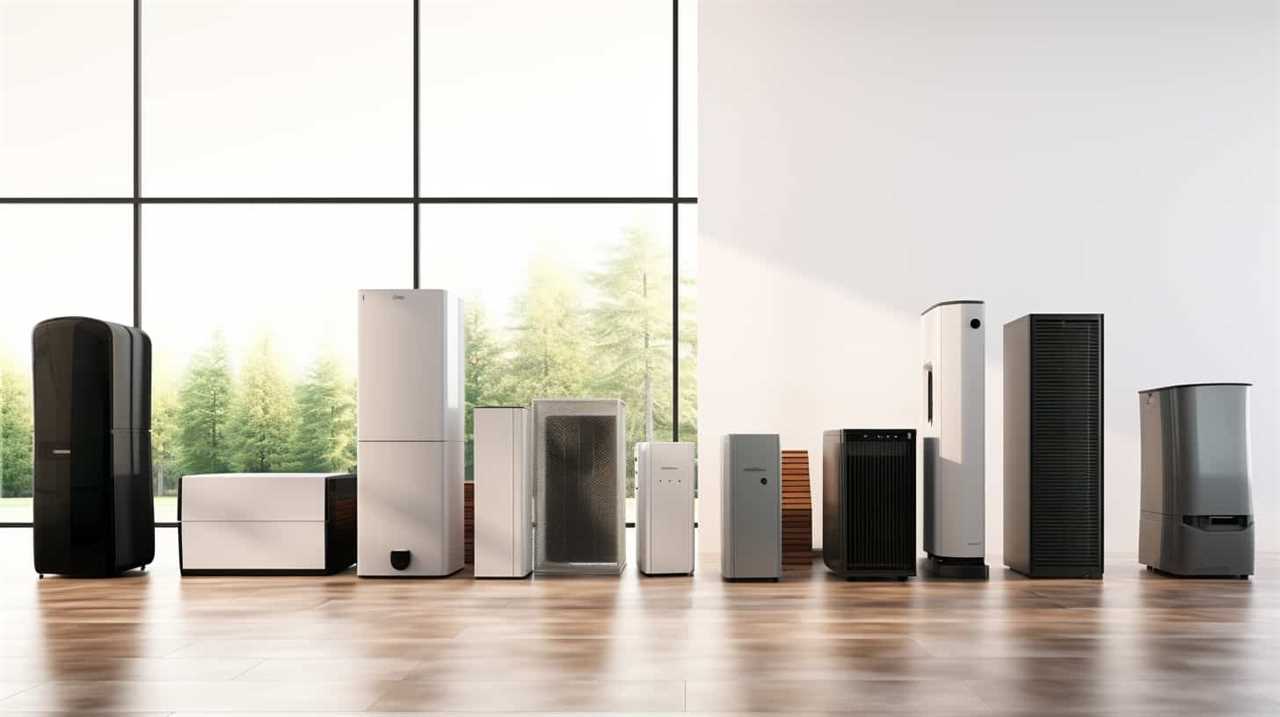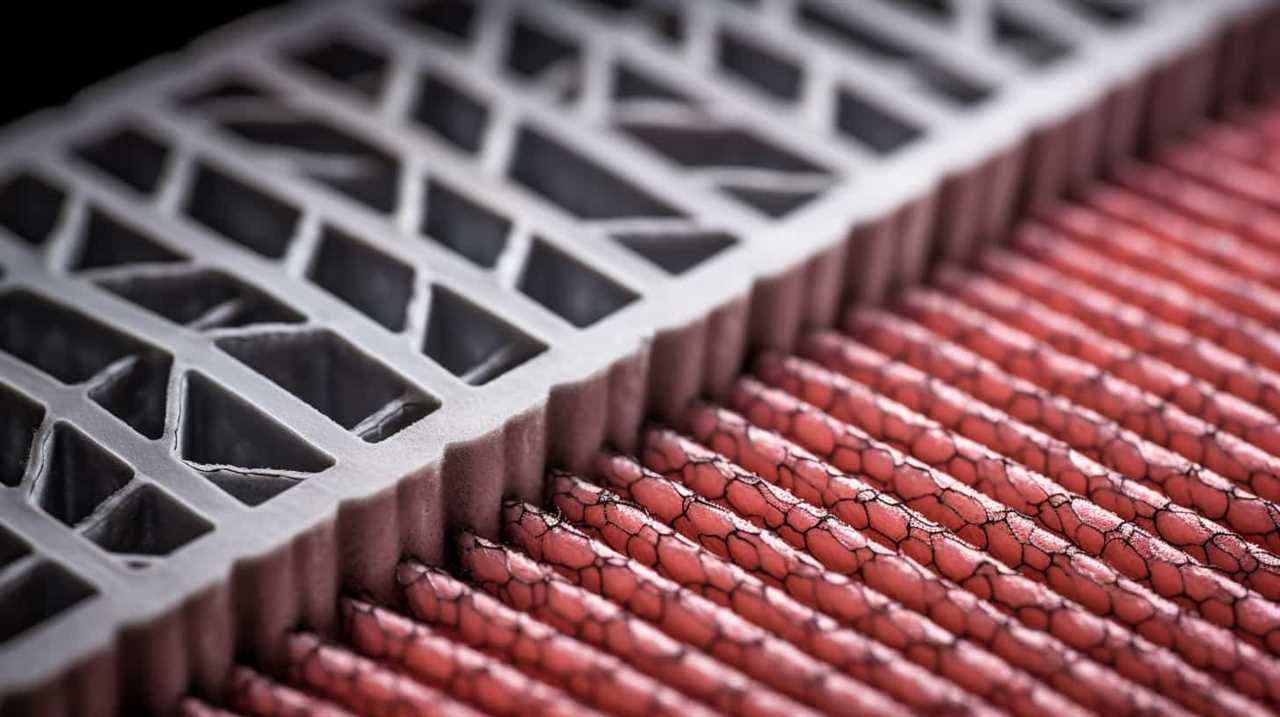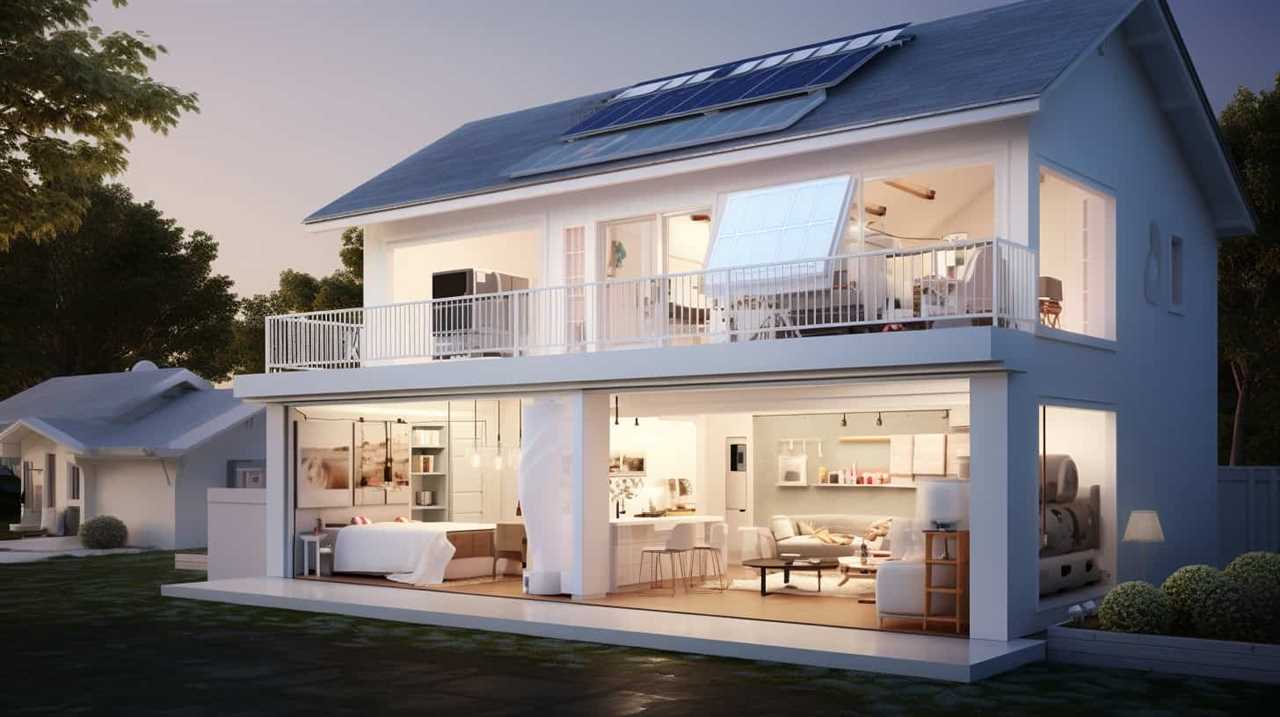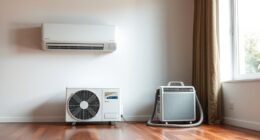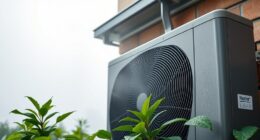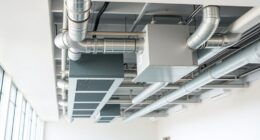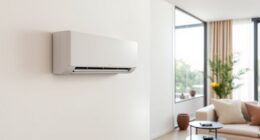Are you aware that air conditioning heat pumps have the potential to reduce your energy bills by up to 50%?
In this article, we will explore the efficiency of these heat pumps and how they can benefit you.
We will dive into the technical details, analyzing the coefficient of performance, energy efficiency ratio, and seasonal energy efficiency ratio.
Additionally, we will provide tips to improve the efficiency of your air conditioning heat pump and compare different types available in the market.
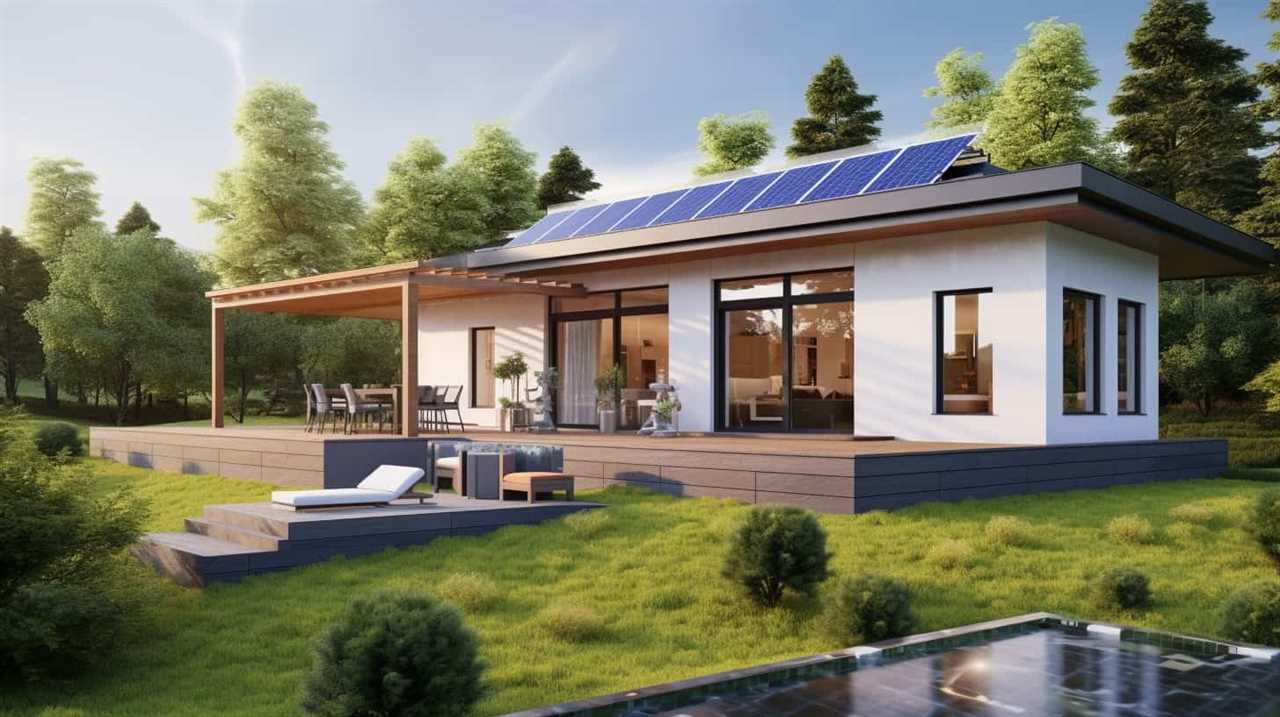
Key Takeaways
- Understanding heat transfer principles helps optimize air conditioning heat pump performance.
- Selecting heat pumps with higher COP values maximizes energy efficiency.
- Proper insulation reduces heat loss or gain, improving the efficiency of air conditioning heat pumps.
- Compliance with efficiency standards reduces energy consumption and promotes the use of energy-efficient technologies.
The Basics of Air Conditioning Heat Pump Efficiency
In this section, we’ll delve into the basics of air conditioning heat pump efficiency. Understanding heat transfer and analyzing energy consumption are crucial in ensuring the optimal performance of these systems.
Heat transfer refers to the movement of heat from one place to another, and it plays a vital role in air conditioning heat pump efficiency. By comprehending the principles of heat transfer, we can design and operate heat pumps that maximize efficiency and minimize energy consumption.
Analyzing energy consumption involves assessing the amount of energy required to achieve the desired cooling or heating effect. This analysis allows us to identify inefficiencies and implement measures to improve overall system performance.
Understanding the Coefficient of Performance (COP) in Air Conditioning Heat Pumps
Let’s delve into the concept of the Coefficient of Performance (COP) and how it relates to the efficiency of air conditioning heat pumps. The COP is a metric used to measure the efficiency of heat pump technology in air conditioning systems. It represents the ratio of heat output to the amount of energy input. In other words, it tells us how much heat energy is produced for each unit of electricity consumed.
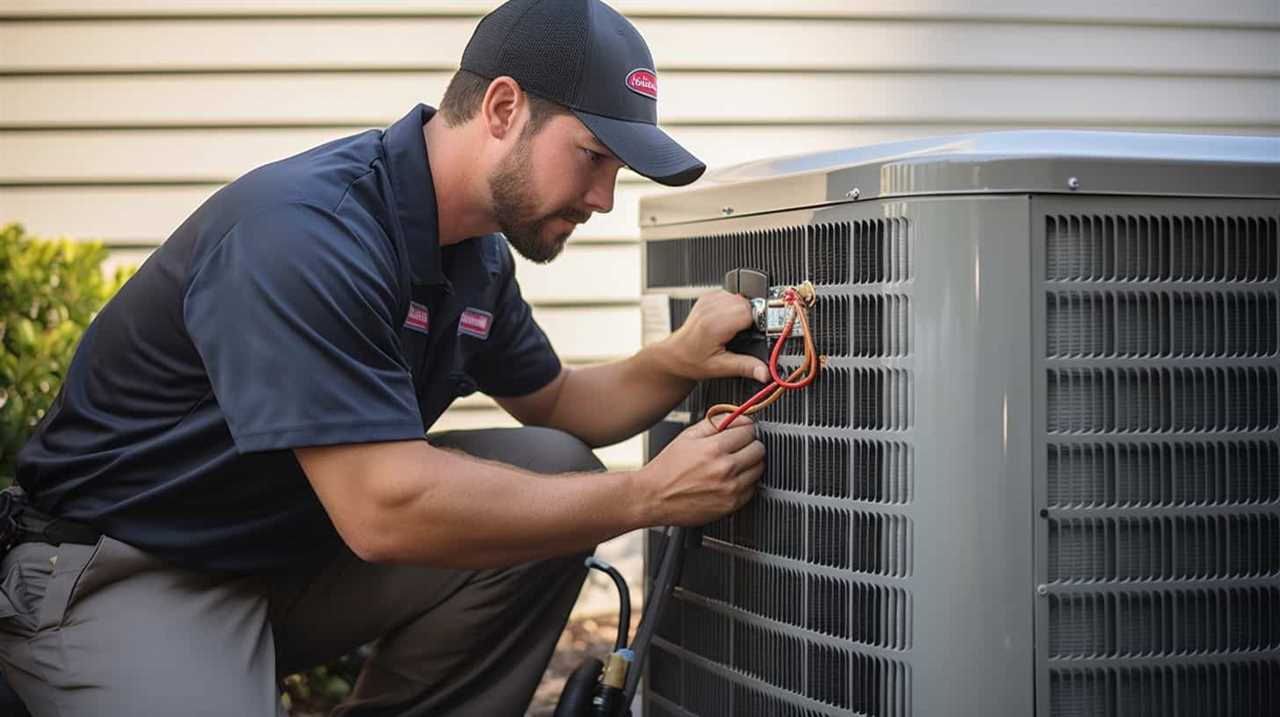
A higher COP indicates a more efficient heat pump, as it’s able to provide more heat while using less energy. Understanding the COP is crucial for implementing energy saving strategies in air conditioning systems. By selecting heat pumps with higher COP values, we can maximize energy efficiency and reduce electricity consumption.
Now that we’ve a grasp on the COP, let’s explore the factors affecting the efficiency of air conditioning heat pumps.
Factors Affecting the Efficiency of Air Conditioning Heat Pumps
One of the key factors that impact the efficiency of air conditioning heat pumps is the temperature difference between the indoor and outdoor environments. This temperature difference plays a crucial role in optimizing the performance of the heat pump. When the temperature difference is larger, the heat pump needs to work harder to transfer heat, resulting in decreased efficiency. On the other hand, a smaller temperature difference allows the heat pump to operate more efficiently.
Another factor that affects efficiency is the type and quality of insulation in the building. Proper insulation reduces heat loss or gain, enabling the heat pump to maintain desired indoor temperatures more effectively. Additionally, the size and capacity of the heat pump should be optimized for the specific space to avoid energy wastage.

Considering these factors isn’t only important for optimizing performance but also for reducing the environmental impact of air conditioning heat pumps.
In the subsequent section, we’ll explore the energy efficiency ratio (EER) of air conditioning heat pumps.
Exploring the Energy Efficiency Ratio (EER) of Air Conditioning Heat Pumps
To further understand the efficiency of air conditioning heat pumps, we’ll explore the energy efficiency ratio (EER). The EER is a measure of the cooling capacity of an air conditioning heat pump divided by the power input required to operate it. It provides valuable information about the energy efficiency of the system and can help consumers make informed decisions when purchasing air conditioning heat pumps.
Here are three key points to consider when examining the EER:
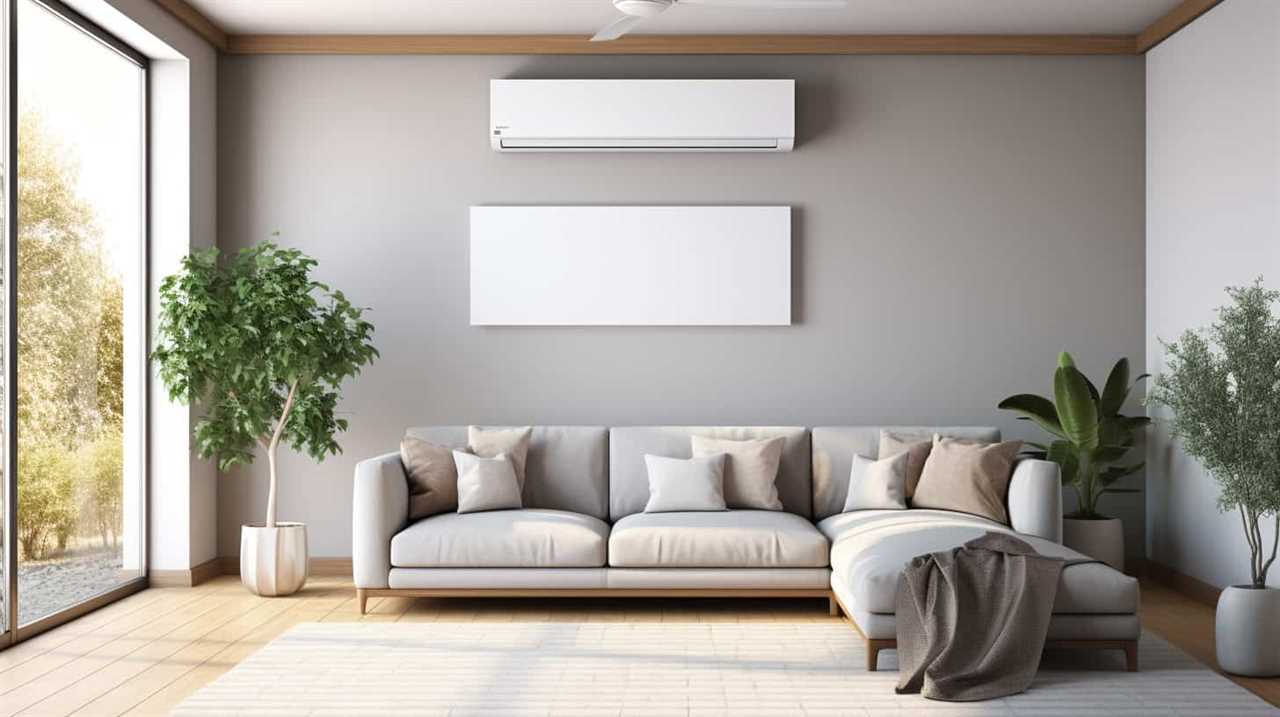
-
Improving COP: The coefficient of performance (COP) is a measure of the efficiency of a heat pump. By improving the COP, the EER can be increased, resulting in a more energy-efficient system.
-
Energy-saving technologies: Various technologies, such as variable speed compressors and energy recovery ventilators, can enhance the energy efficiency of air conditioning heat pumps, leading to higher EER ratings.
-
Proper sizing and installation: Ensuring that the heat pump is properly sized and installed can optimize its operation and maximize its EER, as an undersized or poorly installed system may work harder and consume more energy.
The Importance of Seasonal Energy Efficiency Ratio (SEER) in Air Conditioning Heat Pumps
We highly recommend considering the Seasonal Energy Efficiency Ratio (SEER) when evaluating the efficiency of air conditioning heat pumps. While the Energy Efficiency Ratio (EER) measures the cooling capacity of a unit at a specific temperature, the SEER takes into account the entire cooling season, providing a more comprehensive assessment of energy efficiency. The SEER is calculated by dividing the total cooling output of a unit by the total energy consumed over a season. A higher SEER indicates greater efficiency and lower energy costs. To maximize the SEER of air conditioning heat pumps, insulation plays a crucial role. Proper insulation minimizes heat transfer, reducing the workload on the heat pump and improving overall efficiency. Investing in good insulation can significantly increase the SEER and save energy and money in the long run.
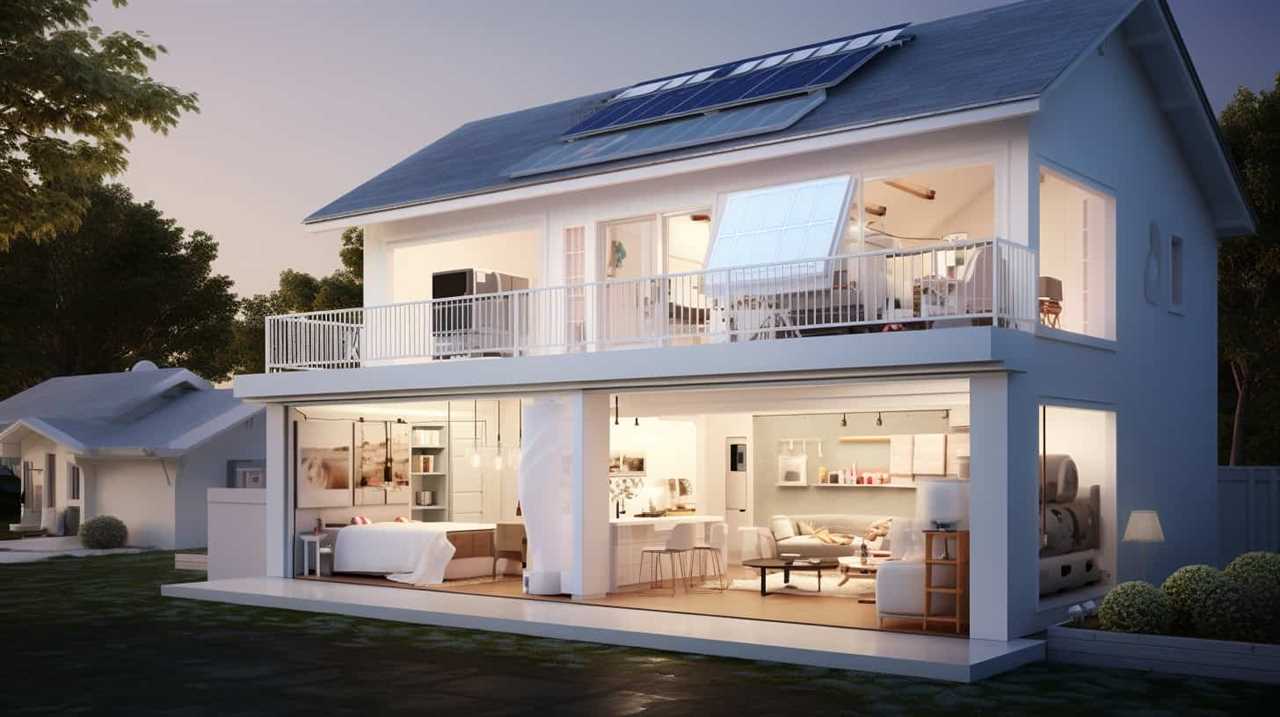
| SEER Rating | Energy Efficiency |
|---|---|
| 13-14 | Standard |
| 15-17 | High Efficiency |
| 18+ | Premium |
Heat Pump Efficiency Standards and Regulations for Air Conditioning
When discussing the efficiency of air conditioning heat pumps, it’s crucial to examine the industry’s compliance with heat pump efficiency standards and regulations.
These standards and regulations play a significant role in ensuring that air conditioning systems operate at optimal efficiency levels, which ultimately impacts energy consumption.
Industry Compliance With Regulations
Ensuring industry compliance with heat pump efficiency standards and regulations for air conditioning is essential for maximizing energy efficiency and reducing environmental impact. Compliance with these regulations helps to promote the use of energy-efficient technologies, reduce greenhouse gas emissions, and conserve natural resources.
Here are three key areas of industry compliance:
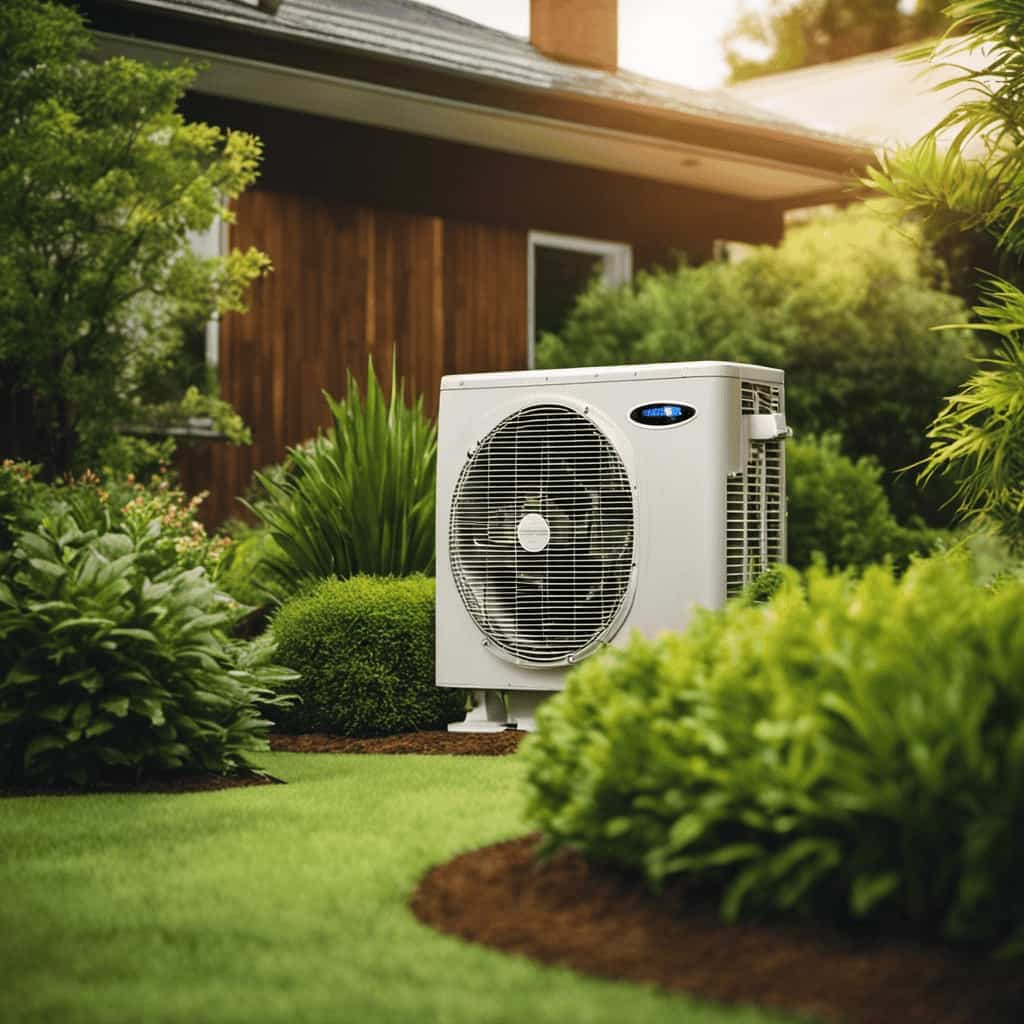
-
Adoption of energy-efficient technologies: Industry trends show a growing focus on developing and implementing energy-efficient air conditioning systems. Compliance with regulations encourages the use of advanced heat pump technologies that optimize energy consumption while maintaining comfort levels.
-
Proper installation and maintenance: Compliance with regulations requires adherence to proper installation and maintenance practices. This ensures that heat pumps operate at their maximum efficiency, reducing energy waste and minimizing environmental impact.
-
Monitoring and reporting: Compliance also involves regular monitoring and reporting of energy usage and efficiency levels. This helps identify areas for improvement, allowing for timely adjustments and optimization of energy consumption.
Impact on Energy Consumption
Compliance with heat pump efficiency standards and regulations for air conditioning directly impacts energy consumption. By implementing these standards, energy saving techniques can be employed to reduce the amount of electricity required for cooling. This not only benefits the environment but also helps consumers save on energy costs. One way to achieve energy savings is by using alternative cooling options, such as evaporative coolers or geothermal heat pumps, which have been proven to be more efficient than traditional air conditioning systems. To illustrate the impact of compliance on energy consumption, the table below compares the energy usage of a heat pump that meets efficiency standards versus one that does not.
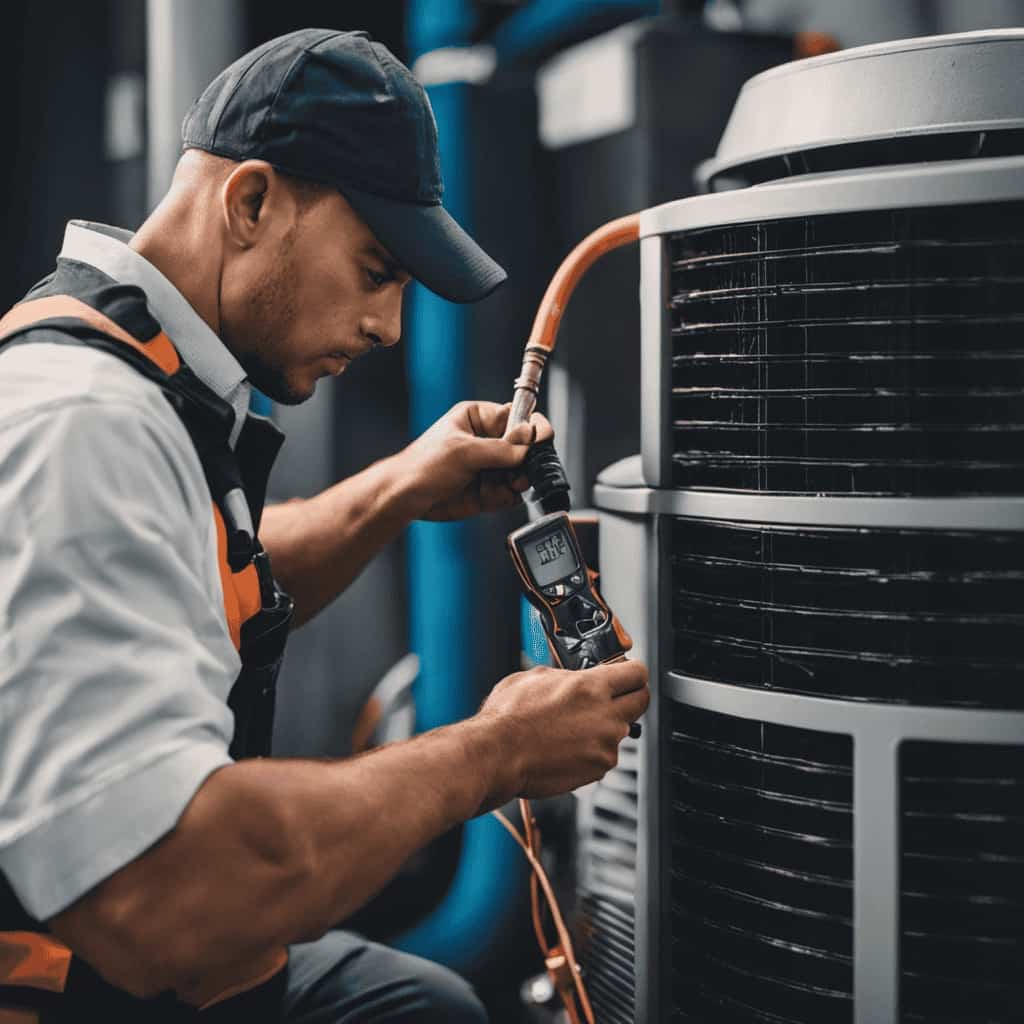
| Heat Pump Efficiency | Energy Consumption (kWh) |
|---|---|
| Meets Standards | 1200 |
| Does Not Meet Standards | 1800 |
As seen in the table, compliance with efficiency standards can result in significant energy savings. In the next section, we will discuss tips for improving the efficiency of air conditioning heat pumps, further exploring the various techniques and strategies to reduce energy consumption.
Tips for Improving the Efficiency of Air Conditioning Heat Pumps
To maximize the efficiency of our air conditioning heat pumps, we should regularly clean and replace the air filters. This simple maintenance task ensures that the system can operate at its peak performance by preventing dust and debris from clogging the filters and reducing airflow.
In addition to improving maintenance, optimizing the settings on our air conditioning heat pumps can also help enhance their efficiency. Here are three tips to consider:
-
Set the thermostat to a higher temperature during the summer months to reduce the workload on the heat pump and save energy.

-
Use programmable thermostats to automatically adjust the temperature based on your schedule, allowing for more efficient cooling when you need it and energy savings when you don’t.
-
Keep the outdoor unit clear of obstructions such as leaves, vegetation, or debris to ensure proper airflow and prevent strain on the system.
Comparing the Efficiency of Different Types of Air Conditioning Heat Pumps
When comparing the efficiency of different types of air conditioning heat pumps, we should consider factors such as energy consumption, SEER ratings, and operating costs. Energy consumption refers to the amount of electricity used by the heat pump to cool or heat the air in your home. The higher the energy consumption, the more you will pay for electricity. SEER ratings, or Seasonal Energy Efficiency Ratio, provide a measure of how efficiently the heat pump operates over an entire cooling season. Higher SEER ratings indicate greater efficiency. Operating costs are influenced by both energy consumption and SEER ratings. To better understand the efficiency of different air conditioning heat pump types, let’s compare their energy consumption, SEER ratings, and estimated annual operating costs in the table below:
| Heat Pump Type | Energy Consumption (kWh) | SEER Rating | Annual Operating Cost ($) |
|---|---|---|---|
| Type A | 1200 | 16 | $800 |
| Type B | 1500 | 14 | $920 |
| Type C | 1000 | 18 | $720 |
Frequently Asked Questions
How Much Does It Cost to Install an Air Conditioning Heat Pump?
Installing an air conditioning heat pump involves various cost factors, such as the size of the unit, complexity of the installation, and any necessary upgrades. Considering energy efficiency can help optimize long-term savings and environmental impact.
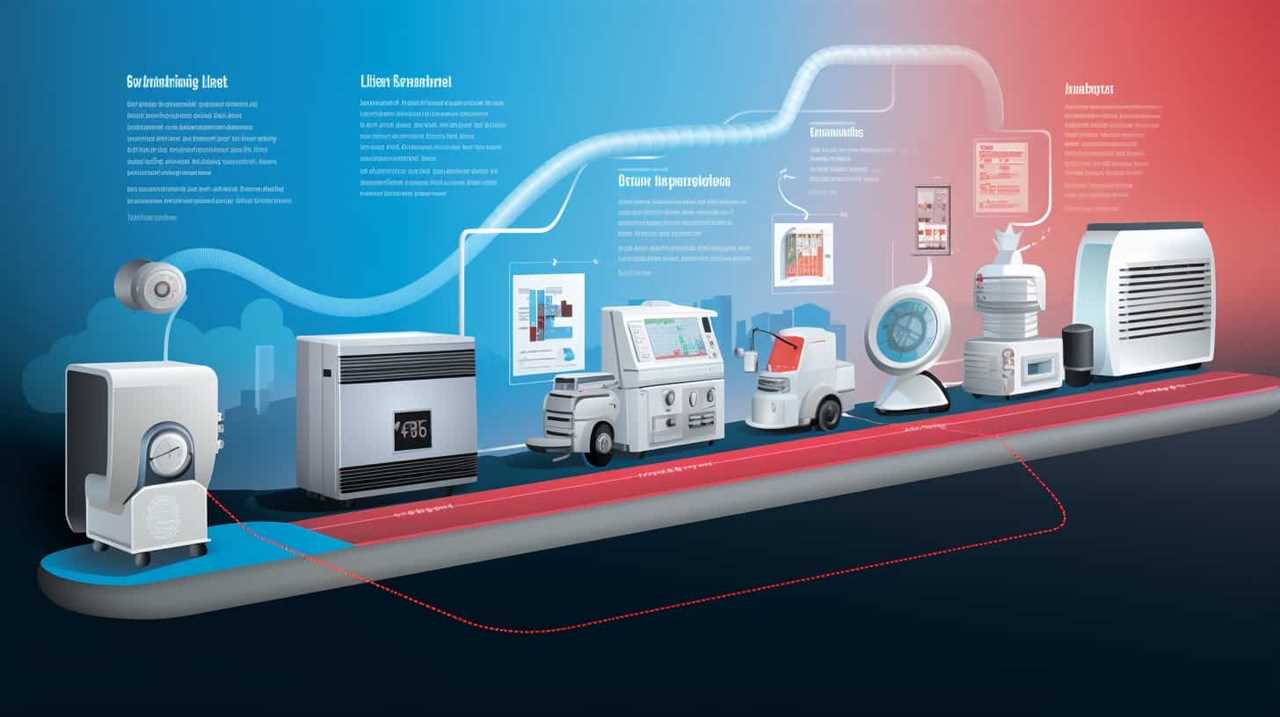
Can an Air Conditioning Heat Pump Be Used for Both Heating and Cooling?
Yes, an air conditioning heat pump can be used for both heating and cooling. It offers efficiency benefits by using less energy compared to traditional heating and cooling systems.
Are Air Conditioning Heat Pumps Environmentally Friendly?
Air conditioning heat pumps are indeed environmentally friendly. Their energy efficiency helps reduce carbon emissions, and they have a minimal impact on the ozone layer. These factors make them a sustainable choice for cooling and heating needs.
What Maintenance Is Required for Air Conditioning Heat Pumps?
Maintenance requirements for air conditioning heat pumps include regular filter cleaning, lubricating moving parts, and checking refrigerant levels. Troubleshooting tips involve inspecting electrical connections, ensuring proper airflow, and addressing any unusual noises or performance issues promptly.
Can an Air Conditioning Heat Pump Be Used in Extremely Cold Climates?
An air conditioning heat pump’s efficiency in extreme cold and performance in low temperatures depend on various factors. We consider factors such as the system’s design, insulation, and supplemental heating to ensure optimal performance in challenging climates.
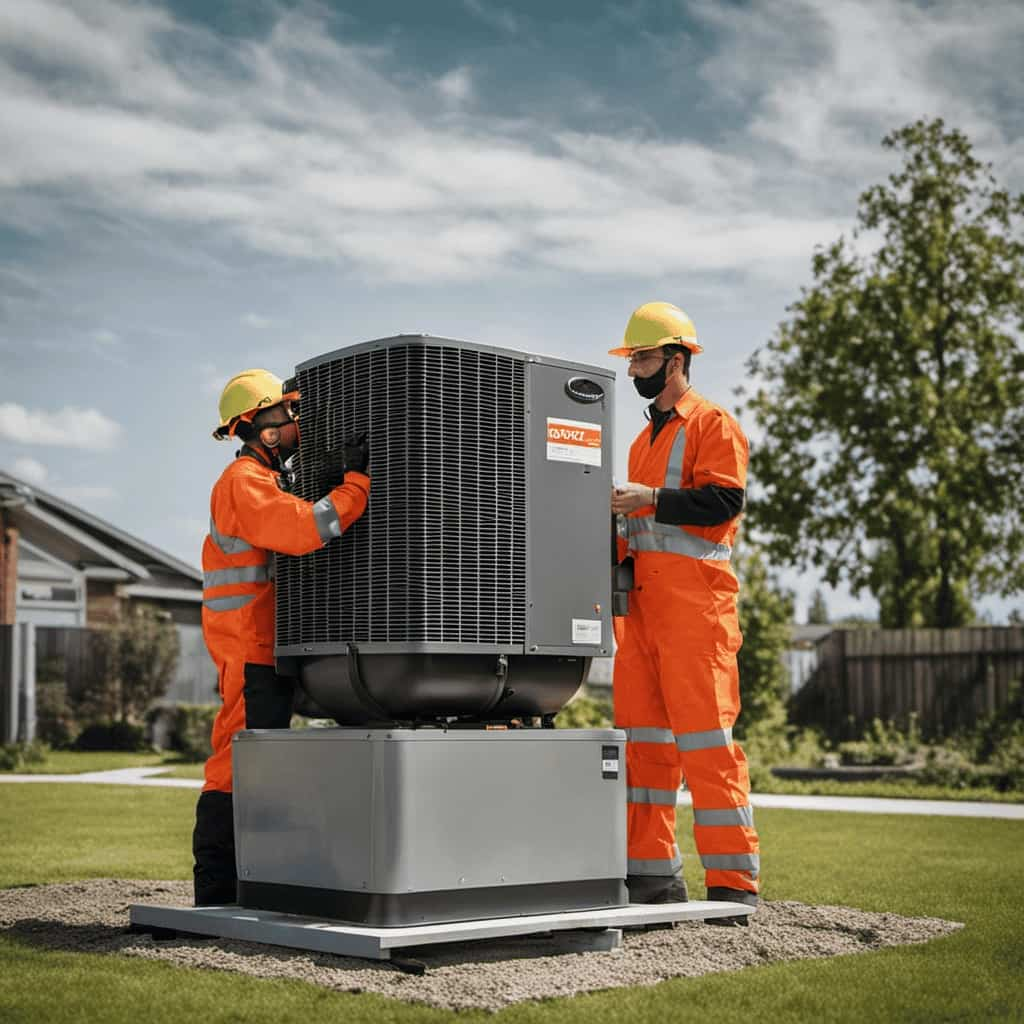
Conclusion
In conclusion, understanding the efficiency of air conditioning heat pumps is crucial for optimizing energy usage and reducing costs.
By considering factors such as the coefficient of performance (COP), energy efficiency ratio (EER), and seasonal energy efficiency ratio (SEER), we can make informed decisions when selecting and operating heat pumps.
Following regulations and implementing energy-saving tips will further enhance their efficiency.
As the saying goes, ‘A stitch in time saves nine,’ taking proactive measures now will result in long-term energy savings and environmental benefits.

